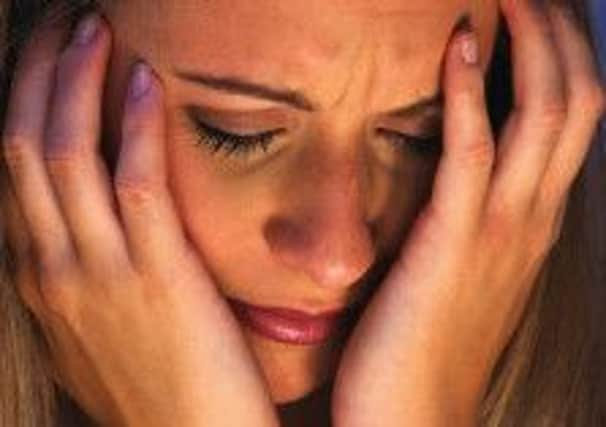Older women at highest risk of anxiety crisis


The number of hospital admissions for stress and anxiety complaints has actually fallen across the country but there are concerns that females aged over 60 account for such a significant proportion of admissions - some 28 per cent between December 2012 and November 2013.
In Yorkshire, there were 25.5 per cent fewer admissions for stress and anxiety - 893 for anxiety and 472 for stress compared to 1,090 and 625 a year earlier. Women aged 60 and over accounted for some 271 admissions in the region last year. Anxiety is described by experts as a state of inner turmoil that can appear in times of uncertainty or fear and, according to national mental health charity Mind, it can affect some people more than others depending on their personality, circumstances or past experiences.
Advertisement
Hide AdAdvertisement
Hide AdJulia Edmunds, corporate director at Age UK Leeds said she was not surprised that so many anxiety-related hospital admissions are older women.
“There are a number of reasons why so many women may be affected. They may have a caring role, their partner might be ill, they may have elderly relatives that they support and friends who are ill and they support.
“Financially, they may be moving from paid work to claiming a pension and have a reduction in income and have life changes to adjust to such as their children leaving home, coming up to retirement, and their partner may have retired and it may take getting used to spending more time together.
“They may be in poor health and on medication which has side effects that affect mood and for many of these reasons, they may be left feeling lonely and socially isolated.”
Advertisement
Hide AdAdvertisement
Hide AdHospital admissions for stress are highest among girls aged 15 to 19 - which totalled 295 admissions over 12 months.
While health experts say that some stress is good for you - helping prepare for actions and challenges - too much stress over a prolonged period of time can lead to serious physical and emotional problems that require medical treatment or therapy.
Sam Challis, information manager at Mind, says the findings serve to underline just how concerning the scale of severe mental health problems is among young girls and that early intervention is vital.
“Hospitalization in itself should be a last resort when it comes to mental health treatment. It is an indication that a patient has reached crisis point.
Advertisement
Hide AdAdvertisement
Hide Ad“These figures emphasize the very real need for early intervention. Schools and colleges, as well as family and those in a child’s wider support network, need to recognise the role they can play. Creating a culture of openness where young people feel able to talk about their mental health is vital, to ensure they get the right support and at the right time. In turn, appropriate services must be accessible, long before hospitalization becomes a necessity.”
Who to turn to for help
A range of helplines offer a supportive ear to anyone struggling with anxiety and stress.
The Mind Infoline provides information on topics including types of mental health problems, where to get help, medication and alternative treatments and advocacy. Call 0300 123 3393 (9am-6pm, Mon- Fri).
Age UK operates an advice line to assist older people in need of a range of support, call 0800 169 6565.
Emotional support is also available from Samaritans on 08457 90 90 90 (24 hours a day) and Sane Line on 0845 767 8000 (6pm-11pm daily).